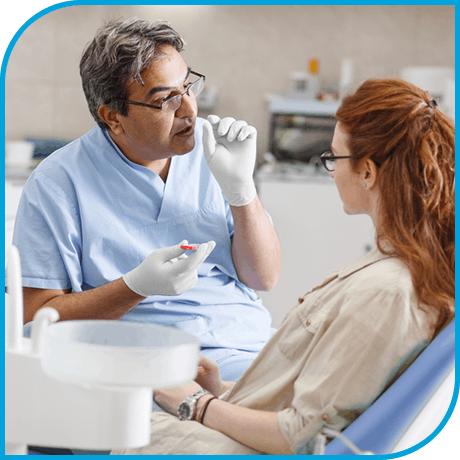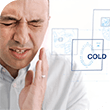HOW TO KEEP YOUR TEETH HEALTHY
Here, we offer some practical ways to help you manage your tooth sensitivity over time and prevent sensitive teeth.
4 TIPS TO HELP PREVENT TOOTH SENSITIVITY EVERY DAY
Adopting good daily oral hygiene habits is one of the best ways to help prevent tooth sensitivity. In addition:

- Use a sensitivity toothpaste. Sensitivity toothpastes, like those in the Sensodyne range, can provide daily relief from tooth sensitivity, when used twice a day.
- Brush and floss regularly. Brushing twice a day can help prevent conditions that can lead to sensitivity, such as gum problems that may result in receding gums.
- Don't brush too hard or too often. Brushing overly aggressively or more frequently than your dentist recommends can contribute to enamel wear and gum recession. Over time, receding gums and enamel loss can lead to exposed dentine and tooth sensitivity. Ask your dentist or hygienist about the best way to brush.
- Use a soft toothbrush. A soft toothbrush can help reduce the effects of aggressive brushing and help protect your enamel.
Remember, your dentist or hygienist can offer advice on the best oral hygiene routine for you, including brushing technique and how frequently you should brush your teeth.
HOW TO PROTECT SENSITIVE TEETH
A good daily oral hygiene routine is the best way to keep your sensitive teeth healthy. Here are some other tips to help protect sensitive teeth.
Brushing twice daily with a Sensodyne toothpaste, the NO.1 DENTIST RECOMMENDED* brand for sensitive teeth, can help ease the discomfort caused by tooth sensitivity, keep teeth clean and prevent cavities.
Watch out for acidic foods and drinks. Acid erosion is caused by the acids found in many everyday food and drinks, such as fizzy drinks, fruit juices and wine, which can wear away your enamel and expose the dentine underneath. If you consume acidic food and drinks frequently throughout the day, you may be at risk from acid wear. Ask your dentist or hygienist for advice on how best to adapt your diet to stop enamel wear.1
Don’t skip visits to the dentist. You should have regular dental check-ups. Your dentist will advise you on when to make your next appointment.
*Retail Value Sales data, 12 months ending September 2018.
1Wilson, M. (2009). Food Constituents and Oral Health: Current Status and Future Prospects. New Delhi: Woodhead Publishing.




















































